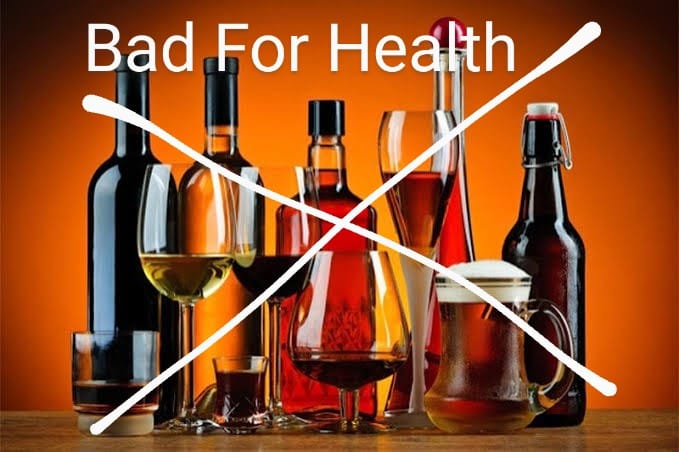29 May
Sandeep Dhand Ludhiana
The impact of liquor on health is a multifaceted topic that has been the subject of extensive research and debate. On one hand, moderate consumption of alcohol, including liquor, has been linked to certain health benefits. On the other hand, excessive and chronic drinking poses significant health risks.

Health Benefits of Moderate Alcohol Consumption
Studies suggest that moderate alcohol consumption can offer some health benefits, particularly for cardiovascular health. Moderate drinking is generally defined as up to one drink per day for women and up to two drinks per day for men. The antioxidants in wine, particularly red wine, have been found to increase levels of high-density lipoprotein (HDL), the “good” cholesterol, and protect against artery damage. Liquor, like whiskey and brandy, also contains some antioxidants that may have similar effects.
Moderate alcohol consumption has also been associated with a lower risk of heart disease, ischemic stroke, and diabetes. Some research indicates that alcohol can improve insulin sensitivity and reduce the formation of blood clots, which can prevent blockages in the coronary arteries. Additionally, there is evidence suggesting that moderate drinkers may have a lower risk of developing gallstones and certain types of dementia.
Risks of Excessive Alcohol Consumption
While moderate alcohol consumption may have some health benefits, the risks associated with excessive and chronic drinking are substantial. Heavy drinking is defined as more than three drinks per day for women and more than four drinks per day for men, or binge drinking, which is consuming a large amount of alcohol in a short period.
Excessive alcohol intake is a leading cause of liver disease, including fatty liver, alcoholic hepatitis, fibrosis, and cirrhosis. Chronic heavy drinking can also lead to pancreatitis, an inflammation of the pancreas, which can disrupt digestion and lead to severe complications.
Alcohol abuse significantly increases the risk of several cancers, including cancers of the mouth, throat, esophagus, liver, colon, and breast. The International Agency for Research on Cancer (IARC) classifies alcohol as a Group 1 carcinogen, meaning there is sufficient evidence of its carcinogenicity in humans.
Mental health is also adversely affected by excessive alcohol consumption. Alcohol dependency can lead to depression, anxiety, and other psychiatric disorders. The social consequences of alcohol abuse, such as strained relationships, poor job performance, and legal issues, further exacerbate these mental health problems.
The Balance and Personal Factors
The relationship between alcohol consumption and health is influenced by various personal factors, including genetics, lifestyle, and overall health status. Some individuals may have a genetic predisposition to alcohol dependence or may metabolize alcohol differently, influencing its effects on their body and health.
For those with certain health conditions, such as liver disease, pancreatitis, or a history of addiction, any alcohol consumption can be harmful. Pregnant women and individuals on certain medications should also avoid alcohol due to potential adverse effects on fetal development and dangerous drug interactions.
Conclusion : In conclusion, the impact of liquor on health is complex and depends on the amount consumed, the frequency of consumption, and individual health conditions. Moderate alcohol consumption can offer some health benefits, particularly for cardiovascular health, but the risks of excessive drinking are significant and can lead to severe health problems, including liver disease, cancer, and mental health issues. Individuals should consider their own health status and consult healthcare professionals to make informed decisions about alcohol consumption. Moderation and mindfulness are key, as is awareness of the potential risks and benefits associated with liquor consumption.
